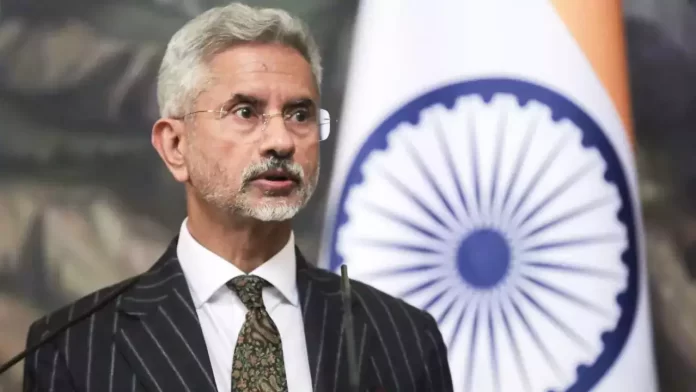Jaishankar’s opinions on the Delhi Declaration on Ukraine’s languageThe New Delhi Declaration recognizes the conflict in Ukraine but does not specifically identify Russia.
On Saturday, S Jaishankar, minister of external affairs, rejected any comparisons between the declarations made in Bali and New Delhi by the G20 leaders, stating that the circumstances surrounding the adoption of the Bali Declaration were distinct. “I can only say that New Delhi is New Delhi and that Bali was Bali in reference to the parallel with the Bali statement. A year ago, when Bali was visited, things were different. After the G20 leaders’ unified statement was approved, Jaishankar noted at the press conference that “many things have happened since then.”
There are a total of eight paragraphs in the leaders’ statement’s geopolitical section, seven of which are really devoted to the Ukraine crisis and many of which address issues of major present import. A theological perspective on this shouldn’t be held, according to Jaishankar.
The external affairs minister stated that the New Delhi declaration “responds to the situation and concerns as it is today, just as the Bali declaration did in a situation that was there a year ago.”
China, according to Jaishankar, has been quite supportive of the G20 summit’s varied results. Every nation must choose the level at which it will be represented. I don’t believe it should be taken too literally. In my opinion, what matters is the stance each nation has taken and the extent to which it contributed to the discussions and conclusions. In my opinion, China has been highly supportive of the various conclusions, Jaishankar said.
With the adoption of the proclamation by all the leaders following India’s revision to its text regarding Ukraine, the G20 presidency of India marked a significant milestone. We reiterated our national positions and the resolutions passed by the UN Security Council and the UN General Assembly (A/RES/ES-11/1 and A/RES/ES-11/6) with regard to the conflict in Ukraine while keeping in mind the Bali discussion. We also stressed that all states must act in accordance with the overall purposes and tenets of the UN Charter. According to the UN Charter, no state shall use or threaten to use force against another state’s territorial integrity, sovereignty, or political independence in order to acquire territory. Nuclear weapons cannot be used or threatened to be used, the declaration on Ukraine stated.
Jaishankar also responded to a query about how challenging it was to agree on the Ukraine issue. “This is a declaration of 83 paragraphs; there are many topics covered, but obviously because of the ongoing conflict and the differing views on it, considerable time was spent in the last few days with regard to geopolitical issues, most of which were focused on the war in Ukraine,” he explained. Jaishankar responded, “Actually… Everyone helped,” when asked who nations contributed to the creation of a consensus on the Ukraine issue. All of us got together to create a consensus, but developing markets took the initiative in this area, and many of us have a long history of collaboration. Remember that South Africa, Brazil, Indonesia, and the United States will be taking the G20 leadership in succession.








